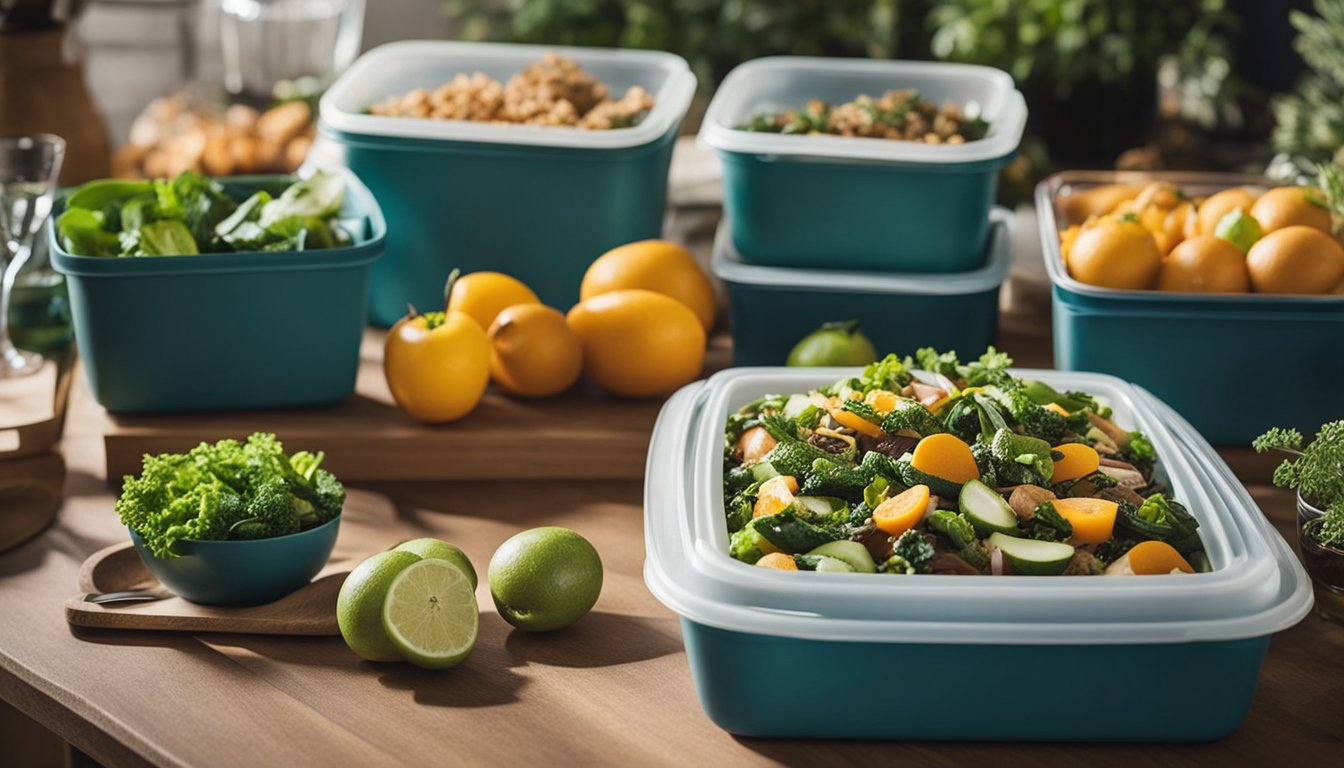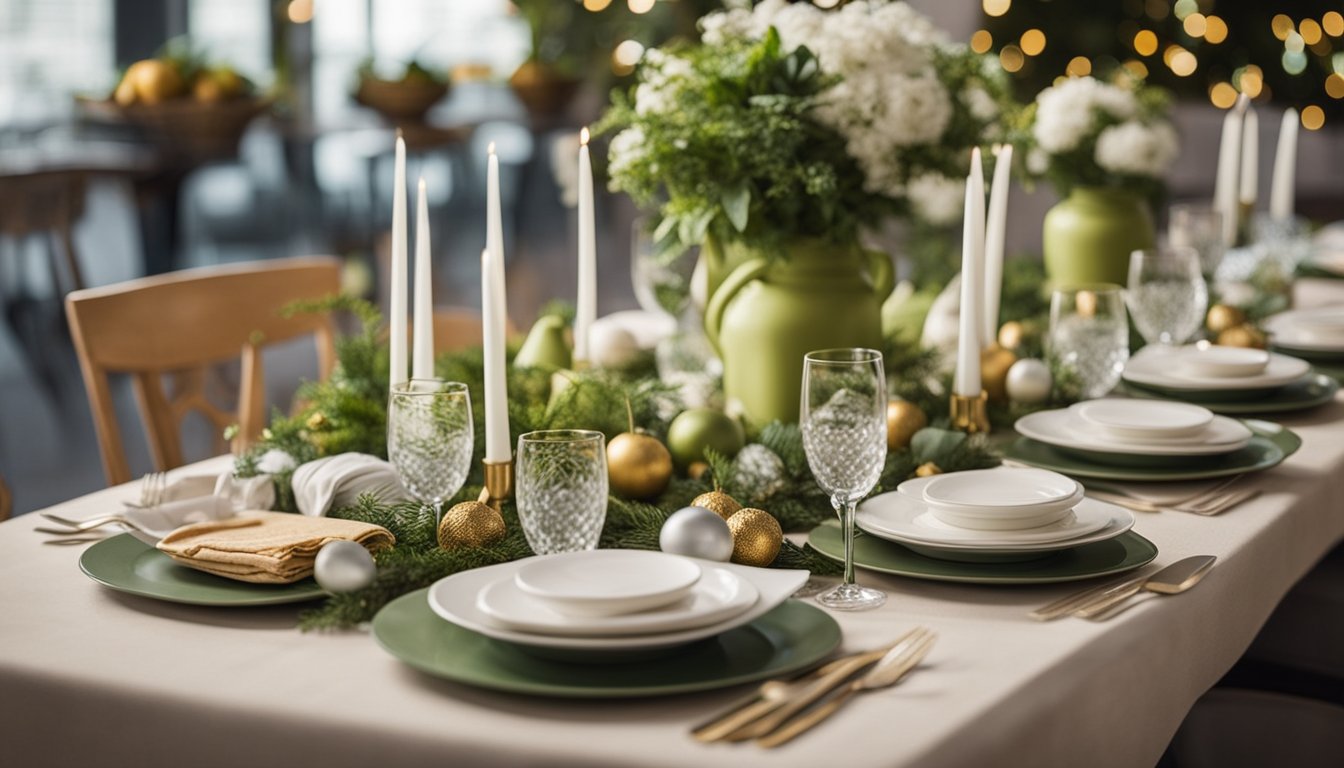Late updated: 12 Jul 2024 10:07
Written by: Sarah Hollister
Simple Ways To Reduce Waste On Holidays: Expert Tips for Eco-Friendly Travel
Reducing waste during the holidays not only benefits the environment but also sets a positive example for others. One effective way to cut down on holiday waste is by using reusable glass containers instead of disposable ones. This simple change can significantly reduce the amount of garbage that ends up in landfills. By avoiding disposable aluminium trays and opting for more sustainable options, we can make a meaningful impact.

Many of us enjoy indulging in festive meals, but food waste is a major concern. Planning meals carefully and composting leftovers are essential strategies. Cooking smaller portions can be a straightforward yet effective way to minimise food waste. If we can manage our resources well, we contribute to a more sustainable holiday season.
Creative gift wrapping can also reduce waste. Using materials like old newspapers, shoeboxes, or paper bags adds a personal touch without contributing to excess garbage. By rethinking how we celebrate, we can make our holidays not only joyful but also environmentally friendly. These small steps collectively make a significant difference.
Key Takeaways
- Use reusable containers for food storage to reduce waste
- Cook smaller portions to minimise food waste
- Opt for creative and sustainable gift wrapping materials
Planning for a Sustainable Holiday
Creating a sustainable holiday involves making mindful choices about gifts, decorations, and festive meals. By focusing on these aspects, we can significantly reduce waste and our carbon footprint during the festive season.
Choosing Environmentally Friendly Gifts
When selecting gifts, opting for eco-friendly options can have a big impact. We can choose gifts that are recyclable or made from sustainable materials. Experiences such as concert tickets, memberships, or workshops are excellent eco-friendly alternatives. They create lasting memories without generating physical waste.
Using secondhand items from charity shops or vintage stores can be just as thoughtful. Handmade and local gifts support small businesses and reduce emissions from shipping. Avoid traditional wrapping paper; instead, consider reusable fabric gift wrap or recyclable materials like brown paper.
Mindful Decoration Strategies
Decorations play a central role during the holidays, but they don't need to be wasteful. We can make eco-friendly decorations by using natural materials like pinecones, berries, and branches. DIY ornaments made from recycled items are not only sustainable but also add a personal touch.
Choosing an artificial tree can be more sustainable if used for many years. However, a natural Christmas tree from a local farm, which can be composted afterwards, is also a great option. LED lights consume less energy and have a longer lifespan than traditional bulbs, reducing greenhouse gas emissions.
Waste Reduction in Festive Meals
Holiday meals often generate a lot of waste, but there are ways to minimise it. Planning meals carefully helps to reduce food waste. Using leftovers creatively can prevent them from going to the bin. Items that can't be consumed can be composted, returning nutrients to the soil.
We can buy ingredients from local sources, which supports local farmers and reduces emissions from transportation. Opting for organic products ensures fewer chemicals and better farming practices. Using glass containers and cloth napkins instead of disposables also aids in reducing waste.
Post-Holiday Practices

After the festive season, managing holiday leftovers and finding innovative ways to reuse or recycle decorations and waste can help us maintain a sustainable lifestyle. These practices ensure that we continue to reduce our impact on the planet even as we move beyond the celebrations.
Disposing of Holiday Leftovers
Managing food waste is essential after the holidays. One effective method is to compost scraps such as vegetable peels and coffee grounds. Composting helps to turn organic waste into nutrient-rich soil. If you don't have a compost bin, consider starting one or look into local composting programmes that accept contributions.
We can also reduce waste by creatively using leftovers. Repurposing meals into new dishes like soups or casseroles can make the most of excess food. Some community organisations accept surplus food donations. This way, we not only minimise waste but also help those in need.
Clever Reusing and Recycling Ideas
Post-holiday cleanup isn't just about disposing of trash. Let's talk about reusing and recycling. Items like gift bags, ribbon, and packaging materials can be saved for future celebrations. Wrapping paper and newspapers can be shredded for mulch or reused for wrapping.
Christmas trees offer another opportunity to recycle. Check with local authorities for tree recycling events where they turn trees into useful mulch. Christmas lights can often be repaired rather than discarded and some places even accept them for recycling.
Using reusable bags for clearing holiday waste and avoiding single-use plastics will further contribute to an eco-friendly cleanup. By adopting these practices, we reduce waste and foster a more sustainable lifestyle.
Frequently Asked Questions

During the holidays, we can all take specific actions to reduce waste, from gift wrapping choices to leftover food management and sustainable decorations.
How can we minimise waste during Christmas celebrations?
We should focus on reusing decorations and avoiding single-use items. Consider renting Christmas trees or using potted ones that can be replanted. Planning thoughtful, tangible gifts rather than excessive novelty items also helps.
What are some effective strategies to reduce holiday food waste?
We can start by planning meals carefully and only purchasing what we need. Leftovers should be composted or creatively reused in other meals. Sharing surplus food with local shelters is another good option.
What steps can be taken to prevent excessive waste from gift wrapping?
Using recyclable or reusable materials like shoeboxes, cloth, or old newspapers can significantly cut down on waste. Decorating these materials with personal touches not only adds sentiment but also avoids unnecessary landfill contribution.
What actions can individuals take to decrease their environmental footprint over the festive period?
Travelling less or using greener modes of transport, minimising energy use with LED lights, and buying local helps reduce our footprint. Supporting sustainable brands and experiences instead of physical gifts also makes a positive impact.
In what ways can we ensure a more sustainable approach to holiday decorations?
Opting for durable decorations that can be reused year after year reduces waste. Creating DIY decorations from natural, biodegradable materials like pine cones or dried fruits adds a personal element while being eco-friendly.
Is it true that waste increases by 25 percent during the festive season, and how can this be mitigated?
Yes, waste typically increases by 25 percent during the festive season. To mitigate this, we should be mindful of our consumption, reuse and recycle where possible, and encourage others to adopt sustainable practices.
